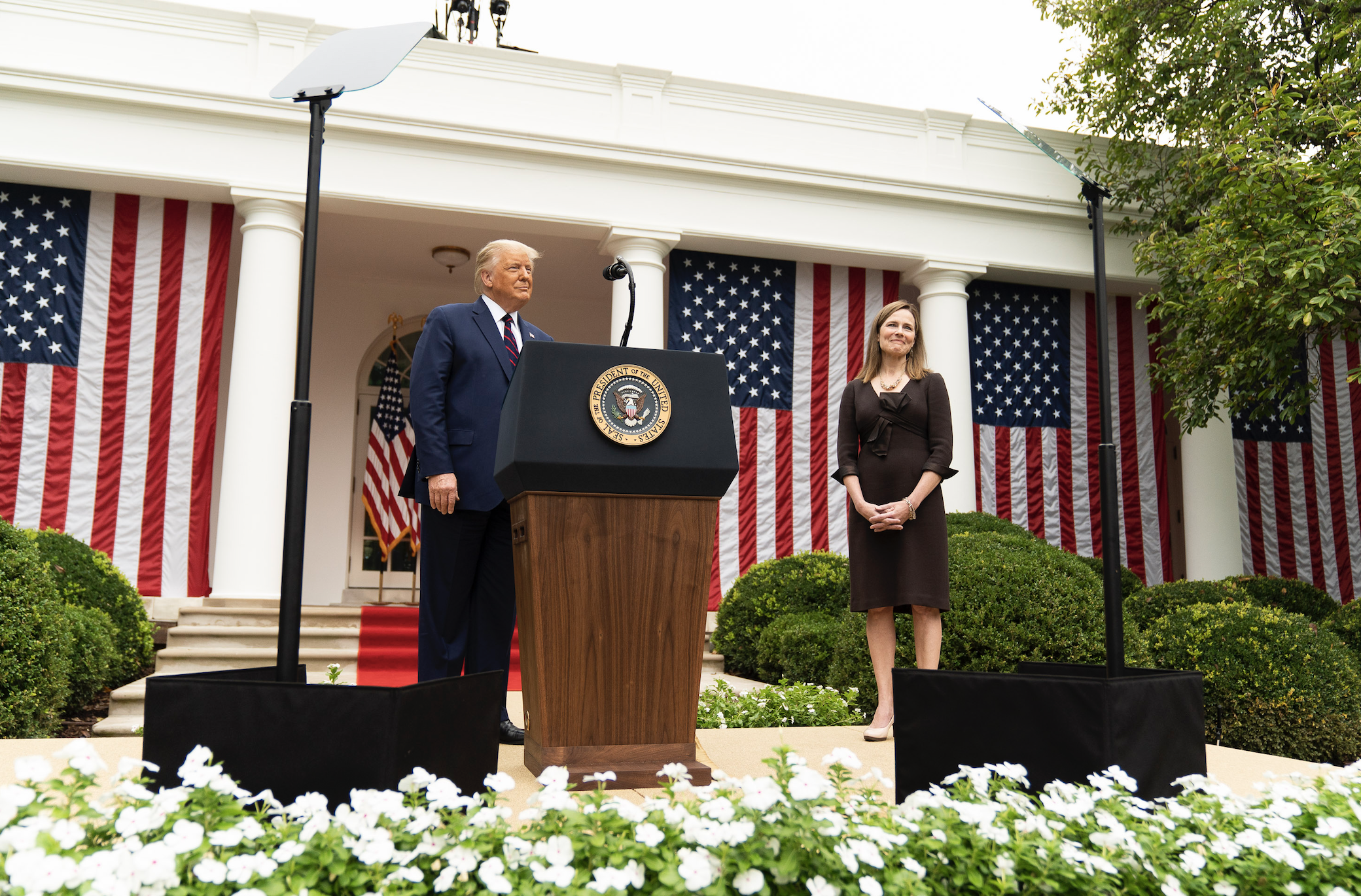
On October 26th, the Senate confirmed Amy Coney Barrett’s appointment to the Supreme Court with a vote of 52-48. This was in spite of Justice Ginsburg’s wish for a new Justice to not be confirmed until after the election. The controversy of Barrett’s appointment was exemplified by the polarised votes of Republicans vs Democrats: all but one Republican, Susan Collins of Maine, voted in favour of Barrett’s appointment, and every Democrat was in opposition.
In an undemocratic and unsurprisingly hypocritical move, McConnell announced earlier this year that Trump’s nominee to the Supreme Court would receive a full Senate vote this year. This came despite the fact that in 2016 he refused to hold a hearing for President Obama’s nominee, a whole nine months before the election. McConnell’s unscrupulous actions demonstrate a clear agenda of politicising the court by filling it with conservatives to further extreme Republican ideological views rather than considering the will of the public.
The chilling reality facing Americans now is that an impeached president who lost the popular vote has been able to appoint a Justice to the Supreme Court. This means the Supreme Court will now have the power to undercut the Affordable Care Act, making it harder for citizens to receive healthcare during a global pandemic which has left 225,000 Americans dead.
Barrett has openly criticised the 2012 ruling of the Supreme Court which maintained the Affordable Care Act, leading to the stark likelihood that when a ruling is made on the Affordable Care Act, which comes before the court on November 10th, Barrett’s vote will be in opposition. This dystopian-like reality represents the demise of democracy in the U.S. under the Trump administration and its quest to sabotage the milestones America had previously made to establish equality and basic human rights.
When announcing Barrett as his nominee, in an attempt to appear as a champion of women’s rights, Trump and Republicans depicted Barrett as a suitable successor to Justice Ginsburg, highlighting her “‘woman’ credentials”: being a mother of seven. Barrett’s appointment, however, is a calamitous blow to women’s rights and an insult to Justice Ginsburg’s memory. Barrett’s Catholic views move the court firmly to the right and present a threat to the future of Roe v Wade, with groups opposing abortion championing her confirmation.
Barrett has even written that abortion is “always immoral” and participated in two dissents against decisions furthering women’s right to choose. During her hearings, Barrett refused to answer questions that would provide any real insight into her views, her silence conveying plenty. Abortion was one of these matters and she stated that she couldn’t “pre-commit” to anything. However, during his 2016 campaign Trump “promised to appoint justices who would overturn Roe v Wade”. Trump’s clear intentions coupled with Barrett’s extremely conservative views make it highly likely that, given the opportunity, Barrett would seek to revoke women’s right to make decisions about their own body. If Barrett’s newly appointed powers are used to overturn Roe v Wade then each senator who voted for her confirmation must be held responsible for the inevitable rise of deaths resulting from backstreet abortions. Outlawing abortion doesn’t stop abortion, it stops safe abortion.
Barrett’s confirmation as a Justice of the Supreme Court has thus been a highly politicised move by the Trump administration, seeking a means to further the extreme right agenda, with life threatening consequences for Americans.
Written by Lauren Taylor



Average Rating